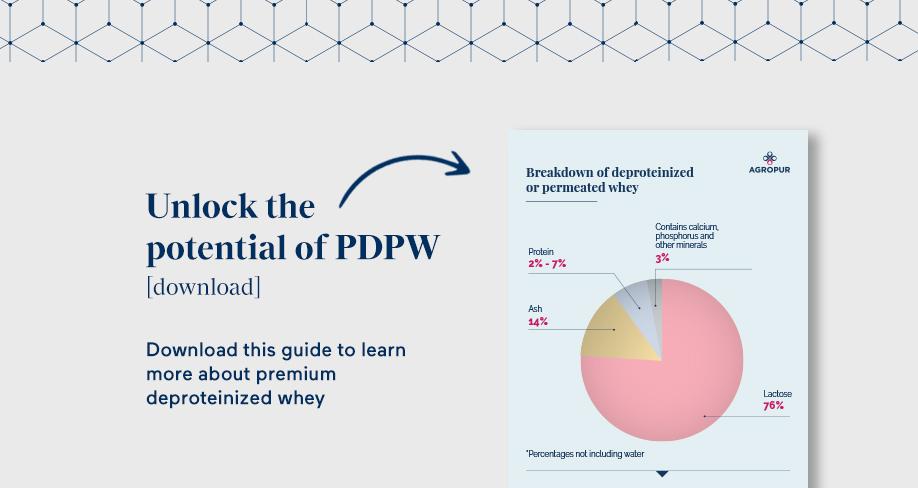Whey permeate: your secret for a better formula

Whey permeate, also known as deproteinized whey, is a great ingredient for cost-effective reformulation.
As Latin America undergoes changes in the nutritional labeling of processed foods and beverages, deproteinized whey has become an important alternative for better formulas.
Latin America faces significant changes in their processed food and beverage formulations and more so than any other region in the world. Countries including Mexico, Chile, Peru and Colombia are still looking for options to reduce critical formulation indices.
Their governments are alerting populations to high fat, sugar, sodium and calorie contents in processed foods. As a result of labeling changes, local companies have been reformulating in all categories of processed foods and beverages since 2007.
Deproteinized or permeate whey as an alternative to reformulate
The large amounts of sodium in ultra-processed products have been a global concern.
"The Mexican Official Standard (NOM-051) seeks to reduce this ingredient and permeate, a by-product of whey, emerges as an ingredient that helps in formulations to do so", explains Claudia Acaero, professor from the Faculty of Chemical Sciences at La Salle University.
Acaero cited the study, "Evaluation of whey, milk, and delactosed permeates as salt substitutes", as a reference. She said protein in permeate and its dairy flavor provide "umami and tasty flavors" that can be used to find, “the exact functionality within the general formulation of different foods.”
Deproteinized whey is created during membrane separation of whey proteins, creating a clean filtrate of lactose-rich solids. It is a cost-effective replacement for whey in sweet-flavored dairy or lactose-free powders, depending on the application. A free-flowing powder, permeate is suitable for baking applications, sauces, snacks, savory mixes and condiments as well as some frozen desserts.
The professor added that lactose has low sweetness and is also used to eliminate excessive sweetness in some candies. It can also be used for matured meat products.
"In general, the permeate has potential and is a profitable method to regulate the sodium content,” she said. “It is also used in candies and instant soups.”
Baking: the industry that currently benefits the most from permeate
Permeate offers several benefits to bakery including color, texture and flavor. Another key benefit is sodium reduction. Bakers no longer have to add excess sodium because permeate is rich in mineral salts. It translates into significant savings for the bakery industry when used in sweet and savory bread formulations. In addition, the dairy flavor may also help in sugar reduction.
"For the yeast to grow, lactose is used, which is not as sweet as sucrose but gives it a certain sweetness," says Dr. Sara Valdés, head of the Food Quality Technology Laboratory at the Faculty of Higher Studies Cuautitlán, in the UNAM.
The specialist agrees that whey permeate can be used in desserts, powders and beverages. Its properties can also conceal unpleasant flavors and aftertaste. It improves texture and helps to integrate flavors in a formulation.
Agropur offers whey permeate under the Crino® brand in two varieties based on extraction processes. Crino Deproteinized Whey is obtained by membrane filtration. Crino Premium Deproteinized Whey is obtained by the ion exchange separation method, which results in a higher quality product with wide uses for the food industry.


